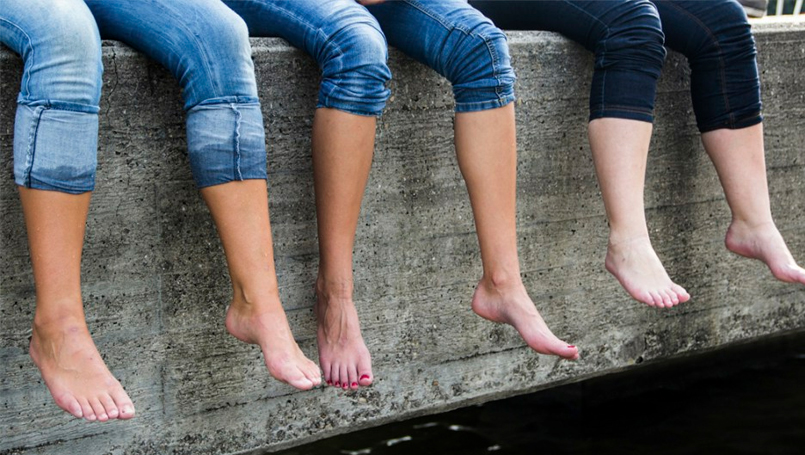
Varicose veins are relatively common among both men and women, but there are many misconceptions about the condition and treatment options. Beaumont interventional radiologists weigh in on some common myths about varicose veins:
Myth: Varicose veins aren’t dangerous, they’re just a cosmetic issue.
Varicose veins can be more than just unsightly. They can cause pain, swelling, restless leg syndrome and tired, aching legs – symptoms that can directly affect daily activities and quality of life. Untreated varicose veins can be dangerous because the blood that is pooling in these veins can clot. When varicose veins clot, the condition is called superficial phlebitis and it is usually very painful, but not necessarily dangerous. However, according to a recent study, the condition can progress into a deep vein clot known as deep vein thrombosis. DVT is dangerous and requires immediate medical attention.
Varicose veins can also be the first stage of a more serious disease called chronic venous disease, often characterized by a brawny skin discoloration, typically of the calf and ankle. The blood pooling in the varicose veins can leak into the tissue of the lower leg and ankle, resulting in darkening and hardening of the skin and potentially causing ulcers of the skin that are difficult to heal.
Myth: There’s no way to prevent varicose veins.
Although venous insufficiency is an inherited condition, some people may be able to prevent the onset of varicose veins. Preventative measures include:
- maintaining a healthy weight
- exercising regularly to strengthen the calf muscle
- elevating the feet while sitting
- wearing support hose
Varicose veins may also be prevented by avoiding clothing that constricts your waist, groin or legs, staying clear of shoes with high heels and not crossing your legs while sitting. It should be noted though, that while these measures may help prevent varicose veins in some cases, they may only slow the onset of the condition in individuals who are particularly susceptible.
Myth: Varicose vein treatment is painful.
The advanced varicose vein treatments available through Beaumont can be done with local anesthesia in an office setting, usually in under an hour and with only mild discomfort. Performed under ultrasound guidance, laser or radiofrequency saphenous ablation treatments cause the abnormal saphenous vein to close, allowing the body to automatically re-route the blood to other healthy veins. Unlike surgical interventions such as vein stripping, vein ablation is a minimally invasive procedure that does not involve general anesthesia or even stitches.
Myth: Insurance doesn’t cover varicose vein treatment.
When pain and swelling is associated with varicose veins, this is a medical condition and treatment is most often covered by insurance. Laser vein ablation and radiofrequency ablation are covered by the majority of health insurance companies. To find out what your coverage is, check your policy and call your insurance provider.
Are your aching legs slowing you down? You could be a candidate for vein ablation services through Beaumont Vein Centers and other options close to home.
